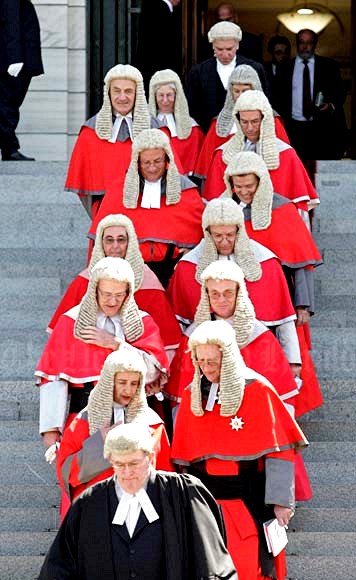1. INTRODUCTION
It is perhaps trite to state that the role of the drafting notary or solicitor is simply not to fill in the blanks and record the testator’s instructions, including his or her choice of executor, but instead to actively advise and draw to the testator’s attention all of the considerations relevant to his or her decision. Frequently the amount of discussion pertaining to the choice of the executor or administrator, is simply a discussion as to “who do you want your executor to be”? Prudent practice would dictate that any discussions pertaining as to who the appropriate executor or administrator might be, should perhaps be left to the end of the consultation, so that the drafting solicitor or notary is aware of all of the necessary personal and financial information relating to the testator’s intentions, or alternatively, to the estate. There is a huge responsibility to be undertaken on the part of the personal representative. Where so far as possible, the potential complexity and responsibility of the executor or administrator’s role should be impressed upon all concerned.
2. IN GENERAL – THE OFFICE OF EXECUTOR/ADMINISTRATOR
An executor derives the title from the will of the deceased, and does not have to wait for a grant of probate from the court before acting on behalf of the estate. An administrator on the other hand, derives his or her power by appointment from the court. The administrator may be appointed in the situation where the deceased dies intestate (without a will) or alternatively, dies with a will but there is no living named executor. In such instance, it is incumbent on someone to come forth and apply to the court to be appointed administrator.
The executor/administrator is the legal representative of the deceased and is often referred to as the personal representative. The office of the personal representative continues for life, so that if after completing the administration with regard to the assets discovered on the death of the testator, other assets fall into the estate, then the personal representative must reopen the administration and proceed with the distribution of the new assets in accordance with the terms of the will or intestacy.
An executor may be appointed expressly in a will or by implication. Sometimes the deceased fails to expressly name an executor, and upon a reasonable construction of the will being conducted, the court may conclude that the deceased did in fact grant to a named person, the essential duties of an executor. In such a case that person is said to be appointed “according to the tenor of the will”.
3. SHOULD THE PERSONAL REPRESENTATIVE AGREE TO ACT?
No one can be forced to be a personal representative, and an executor always has the option of renouncing, but this must be done before the executor “intermeddles with assets of the estate”. Any prospective personal representative should give serious consideration as to whether or not he or she
is prepared to act as the personal representative. Under no circumstances should the prospective personal representative deal with the assets or otherwise intermeddle in the estate, until he or she has in fact decided to act as the personal representative.
Some of the preliminary considerations for the prospective personal representative to consider are:
(a) the potential for personal liability which may arise under many circumstances;
(b) the possibility for conflict of interest, such as where the executor is also a business partner of the deceased;
(c) the nature of the deceased’s assets, including the complexity of the estate;
(d) the personal relationship of the prospective personal representative with the beneficiaries or intestate successors;
(e) the time, stress and hassle of being an executor and dealing with lawyers, beneficiaries and the like;
(f) the time involved versus the potential remuneration available;
(g) the actual terms of the will and such factors as whether there will be ongoing lengthy trusts.
Once a personal representative accepts an appointment, he or she becomes a trustee for the estate, and he or she must exercise the powers bestowed upon the office, with diligence and care. A personal representative may become personally liable if their office is carried out in a negligent or improvident manner.
There is a technical difference between the personal representative and the trustee, and that is why in most wills, the personal representative is appointed as the executor and trustee. One important difference is that a trustee can appoint other trustees and can also retire from the trust. An executor however cannot appoint someone to act as co-executor, and nor can he or she retire from the office once the will has been proved.
4. INTERMEDDLING
An executor may also be appointed other than by a will, where the executor intermeddles in the assets of the estate, to the extent that the intermeddling makes that person an executor de son tort. This arises where the intermeddler has assumed the authority and office of the personal representative, and has dealt with the assets of the estate. It has arisen in such instances where the executor de son tort has arranged the burial of the deceased, gathered in assets and paid the debts. Once an executor has in fact intermeddled, he or she loses the right to renounce executorship, and may incur personal liability for any loss or damage that has resulted from any improper administration of the estate. However slight acts of intermeddling are not enough to make a person an executor de son tort.
5. WHO MAY BE APPOINTED?
Almost anyone can act as an executor, and generally speaking a testator may appoint whoever he or she likes to be his or her executor. Generally speaking the courts are very hesitant to interfere with the appointment of the executor as chosen by the testator.
However, persons of unsound mind are incapable of acting as personal representatives, and when the personal representative is or becomes insane, the court will grant administration to someone else. An infant may be appointed to be a personal representative, but the infant cannot act as personal representative during his or her minority. Accordingly if an infant is named sole executor, administration is granted with the will annexed to the guardian of the infant or to such other person as the court shall think fit, until the infant attains the age of majority.
In many instances, the court will refuse a grant of probate and will pass over an executor, where the court considers it inappropriate that such an appointment be made. These situations are typically where the proposed personal representative has been convicted of a fraudulent offence or has become bankrupt after the date of the will, or in situations where it has been established that a marked hostility existed between the proposed personal representative and the sole beneficiary. However, as previously stated, the court will not likely interfere with the discretion exercised by a testator in naming his or her personal representative. Before any application can be made for the removal of an executor and the appointment of someone else as administrator, probate must first have been granted to the executor whose removal is sought.
6. QUALIFIED APPOINTMENT
The appointment of a personal representative may be either absolute or qualified. Where the appointment is qualified, it may be either as to time, place or as to purpose or subject matter. When the personal representative is appointed for a fixed period or until a specified event occurs, the authority ceases automatically when the period expires or when the event takes place. When the appointment is subject to a condition precedent, then that condition must be performed and the court has no power to relieve against an inadvertent failure to comply with it. A will may for example appoint one person as the personal representative for certain purposes or property, and another personal representative for general purposes. In that situation, probate will be granted to each personal representative, but will distinguish between their powers.
7. CHOOSING THE EXECUTOR/ADMINISTRATOR
It is extremely important that the testator’s choice of his or her executor be given serious consideration. The attending notary or solicitor must remember that most clients have very little understanding as to the tasks and requirements that a personal representative must perform and the responsibilities that must be assumed. The appointment of the wrong person can be a costly and emotionally draining experience for all concerned. Accordingly it is important that the will’s draftsperson investigate the desired appointment and provide prudent legal advice as to who should be chosen to be the executor and trustee. Very often that choice cannot properly be made, until the attending notary or solicitor firstly enquires as to the nature of the assets, and the intentions to be carried out in the will.
There are many questions that the testator should consider prior to naming his or her executor, some of which are:
(i) will the executor be willing to act;
(ii) is the executor sufficiently sophisticated to carry out the job;
(iii) is the person trustworthy;
(iv) is the person young enough or healthy enough to carry out the job;
(v) will the executor be biased;
(vi) will the executor be able to work well with the beneficiaries;
(vii) does the executor have the time to do the job;
(viii) can the executor afford to do the job;
(ix) is there any conflict of interest or potential conflict of interest;
(x) should there be more than one executor;
(xi) the distance between where the testator and the executor reside.
The nature of the client’s affairs must be thoroughly examined to determine the like of active business interests, assets in foreign jurisdictions, loans or gifts to beneficiaries and the complexity of the various personal property and investments in the estate.
Generally speaking the choice for the testator usually comes down to choosing between:
(i) family members;
(ii) friends or acquaintances;
(iii) a corporate trustee.
Testators are often reluctant to talk frankly about the respective capabilities of their family members in choosing an executor. Often it is the notary or the solicitor’s job to tactfully ask the appropriate questions as to each of the respective family member’s strengths and weaknesses. It should be stressed that it should be the most appropriate person in terms of temperament, sophistication and personality that should be selected, rather than for example the oldest child. Certainly the testator should be prodded to speculate as to how the dynamics between his or her children will be after they are no longer alive.
Testators often wish to co-appoint one or more family members and I personally am of the view that this should be discouraged. If the client is adamant that there be a multiple number of family members as executors, then a majority rule clause should be inserted in the Will. If there is a handicapped child or children and discretionary trusts are being established, then careful consideration must be given as to who will be the executor and trustee, particularly as it relates to the possibility of a conflict of interest with respect to any residual funds after the death of the handicapped child.
If there are no appropriate family members, then consideration will then most likely turn to friends or acquaintances Friends or acquaintances are often of the same generation as the testator, and if so may be a bit too old.
The corporate trustee is certainly an appropriate alternative in many instances, particularly where there is a dysfunctional family and/or a complex estate with sizeable assets. The corporate fiduciary is impartial and will have the necessary sophistication and means to handle a sophisticated estate and/or difficult beneficiaries. The corporate trustee will also have a good understanding of the concept of even handedness and the potential for conflict of interest. Certainly the corporate trustee has a wealth of special knowledge and expertise, and this must be weighed against the negative considerations of choosing a corporate trustee, which are typically the expense, and its relative inflexibility and relative lack of personal touch.
8. DUTIES OF A PERSONAL REPRESENTATIVE
A personal representative has a duty to act solely and exclusively for the benefit of the beneficiaries. This duty is construed strictly, and forbids a personal representative from making a profit that is not authorized, or occupying a position where the personal representative’s self interests would conflict with the duty to the beneficiaries. The Courts of Equity have required personal representatives to ensure that each beneficiary receives exactly what he or she is entitled to receive under the will or the estate. The personal representative must maintain an “even hand” when dealing with all beneficiaries.
The personal representative has a duty in exercising all of his or her powers, whether discretionary or administrative, to maintain the standard of care of a reasonably prudent businessperson managing someone else’s property. Generally speaking, the personal representative cannot delegate his or her duties. The Courts in recent years however have permitted delegation of administrative duties that a reasonable and prudent businessperson would delegate in the management of his or her own business affairs. This would include the use of brokers, real estate agents, accountants, lawyers, appraisers and so forth.
The personal representative’s general duties are as follows:
(1) To dispose of the deceased’s body.
It is the executor and not the testator’s spouse or family, who has the right to determine the place and manner of burial. The Cemetery and Funeral Services Act sets up a priority structure as to who has the right to control the disposition of human remains. First priority is given to the executor, then to the spouse, and then to various categories of relatives. If the person who has the right to control disposition is unavailable or unwilling, the right passes to the next person of the priority list. Proper funeral expenses incurred are payable out of the estate. Generally, the person who instructs the funeral director will be personally liable to pay all expenses incurred, but is entitled to indemnity as a first priority against the estate for the reasonable expenses of a suitable funeral. There are some cases where the executor has been denied reimbursement of the full funeral costs, where the costs have been found to be excessive under the circumstances.
(2) Take possession or control of the deceased’s assets.
The personal representative must take steps to search for any cash, jewelry, valuables and the like, and arrange for their safekeeping. Any personal property must be locked up and properly insured. Other assets that may require insurance coverage must also be checked into. Financial institutions and government agencies must be notified of the death. Mail must be re-directed and the bills, including mortgages, must be paid. Rents must be either collected or paid and businesses must be managed for the interim until distribution of the estate or until the sale of the business. A personal representative must enquire as to whether they have sufficient legal authority to carry on the business, and must also be cognizant of the potential for personal liability for carrying on the business.
(3) Complete a schedule of all of the deceased’s assets and ascertain their value.
After the executor has taken charge of the assets of the estate, and has made a full inventory of the assets and a valuation of same, the personal representative should then arrange to have an application made to the court for the issue of a grant of probate. In the case where the deceased dies intestate or without a named beneficiary, there is often a delay experienced in finding some appropriate person to step forward and apply for letters of administration. Rule 61(20) of the Rules of Court, seems to assume that in practice, in the absence of special circumstances, the court will usually give priority to appointing as administrator of the estate, the person or persons who have the greatest interest in the estate. In practice consents will be required from any person entitled to share in the estate who has a greater or equal right to apply. Thus, if two or more persons are equally entitled to apply, they must either apply jointly, consent to the appointment of one of them, or be served with notice under Rule 61(20). There is no limitation on the number of administrators who may be appointment.
(4) Advertise for creditors.
Before any debts of the estate are paid, the executor or administrator should see to the publication of the proper advertisement for creditors, claims and other claims against the estate. From my experience, common sense should prevail in deciding whether or not to advertise for creditors, as the costs can be considerable. In the case of a little old lady with simple assets and a history of paying her bills on time, it may not be necessary to publish such an advertisement. However if the personal representative is to protect him or herself from liability, then serious consideration should be given to the placement of such an advertisement, as Provincial Legislation states that the personal representative shall not be personally liable to creditors, where notice has been properly given and the assets of the estate have already been distributed.
(5) To notify beneficiaries, and persons who would take on an intestacy with respect to an application for probate or letters of administration;
(6) To act personally, although as aforesaid, delegation may be allowed in certain administrative circumstances;
(7) To ensure that investments are authorized.
There is a duty to examine the assets and investments of the estate, and in general, to convert in a reasonable and timely manner, the assets that do not qualify as authorized investments for the estate. The executor must be concerned with assets that may waste (ie, an unheated greenhouse) or that are to speculative (penny stocks), or reversionary assets;
(8) To complete and file income tax returns and where necessary obtain a Clearance Certificate from Revenue Canada;
(9) To pay the debts, including funeral, legal, testamentary expenses, succession duties and probate fees;
(10) To claim all debts due to the deceased and generally collect all of the assets;
(11) To keep accounts:
The personal representative has a duty to be prepared to account to creditors and to persons who have a beneficial interest in the estate. The personal representative must give to anyone to whom he or she owes a duty such information as that person reasonably requires. The type and amount of information varies, but the duty to account is owed to beneficiaries, unpaid legatees, unpaid creditors, successors, trustees, others who may have an interest in the deceased’s assets, and others provided for by statutes such as the Public Guardian or Revenue Canada.
(12) To continue or bring and maintain court actions on behalf of the estate:
Under Section 59 of the Estate Administration Act, a personal representative of a deceased claimant may continue or bring and maintain an action for a loss or damage to the person or property of the deceased in the same manner and with the same rights and remedies as the deceased, except for certain actions such liable and slander, pain and suffering, and loss of expectancy of earnings. A personal representative may continue or bring and maintain an action under the Wills Variation Act, or an action for constructing or resulting trust on behalf of the deceased.
(13) To distribute the assets in accordance with the will or the laws of intestacy.
8. THE EXECUTOR’S YEAR
Generally speaking the personal representative must not unreasonably delay in calling in the assets and settling the affairs of the estate, and distributing the assets in accordance with the will or the rules of Intestate Succession. There is no hard and fast rule as to what constitutes undue or unreasonable delay, but as a general rule of thumb, there is an executor’s or administrator’s one year to do so. The general rule is that the executor has one year from the testator’s date of death, and in the case of an administration, the administrator has one year from the date of the grant, to settle the affairs of the estate. There is case law to the effect that in the case of a legacy, the executor is entitled to withhold payment during the one year, even though the will indicates that the testator wishes payment to be made as soon as possible.
I will not deal with the topic of removal of an executor in the paper, but will do so at a later date.
9. RENUNCIATION
Where the proposed personal representative has not intermeddled in a substantial way, then he or she can renounce the appointment as executor. Any renunciation must be unconditional and be in writing and properly witnessed. The renunciation takes effect as of the date of execution, but it may be withdrawn prior to filing it with the court. The renunciation is usually filed at the same time that the application for the grant of probate is made.
There are many reasons why an executor may wish to renounce, and this should be canvassed with the proposed personal representative at the initial meeting, and as soon as possible after the death of the deceased. For example I recently had a Provincial Court Judge renounce as executor, when it was likely that he would be named as a defendant as personal representative, in an action brought for an alleged sexual assault. This would be embarrassing to the executor given his job as a Judge.
If the proposed personal representative is one of two or more executors appointed under a will, then he or she may choose not to participate in the administration of the estate initially, and leave it up to the remaining executors to do so. In these circumstances, the remaining executors would apply for probate, and would reserve the right of the prospective personal representative to apply at a later date if he or she should choose to do so. Reserving the right to apply for probate may be appropriate where the prospective personal representative prefers not to act for reasons such as distance, lack of time, age, illness, or other such reasons.
The fact that an executor has not obtained a grant of probate does not mean that person is no longer an executor. Renunciation is generally preferable to a reservation of the right to apply for probate, unless the non-proving executor seriously wishes to reserve the right to apply for probate in the future.
10. THE CHAIN OF EXECUTORSHIP
If two or more executors have proved a will, and one of them dies after the grant, and no alternative executor has been named, then the surviving executor will continue, unless the will requires a minimum number of executors greater than the number of surviving executors.
However if a grant has issued and the sole executor or the survivor of several executors have proved the will, but dies before completing the administration of the estate, and no alternate was named in the will, then the executor of the deceased’s executor will become the executor of the original testator once he or she obtains probate of the deceased executor’s will. The replacement executor will stand in the shoes of the original executor in all respects.
This rule is referred to as the chain of executorship and it applies only in the circumstances where the executor named in the will has taken probate of the will before death, and each will in the chain must have been proved or probated.
11. REMUNERATION
Unless the will provides otherwise, all executors whether lay or professional, whether experienced or not, are entitled to be paid remuneration in accordance with the provisions of Section 88 of the Trustee Act, R.S.B.C. This section allows the executor to be paid, in the discretion of the court, up to a maximum of 5% of the gross aggregate value of the estate, including capital and income, together with an annual care and management fee of up to .4% of the average market value of the estate.
In most circumstances, the beneficiaries may well approve a 5% fee to the executor. In many instances however the courts will not allow the executor be paid the maximum 5% of the gross aggregate value of the estate. The courts will enquire into a number of factors, including the complexity of the estate, the experience of the executor, the time spent by the executor, the value of the estate, the amount of time spent administering the estate, and the like. However from a perusal of the somewhat limited number of cases on point, it would appear that the court very often will award fees more in the range of 2 1/2% to 3 1/2% rather than the maximum.
12. CONCLUSION
It is very important that the testator’s choice of an executor or executors be given sufficient scrutiny and discussion. As previously stated, most clients have little or no understanding of the onerous responsibility that an executor or alternatively an administrator, must perform. An inappropriate or improvident appointment can often complicate the administration of the estate unduly, and in certain cases, unnecessarily result in litigation. Accordingly, it is incumbent upon the drafting notary or solicitor to thoroughly investigate the desired appointment and to provide suitable legal advice.









